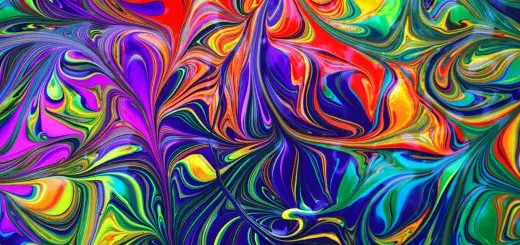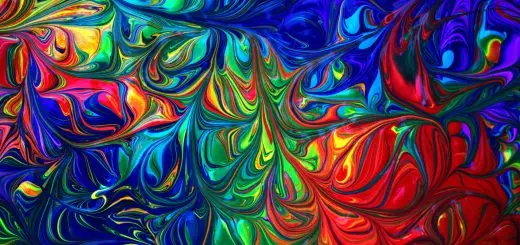Chinese Mythology: Dragons, Emperors, and Celestial Guardians

Looking for more amazing products? Check out our online store and explore our collection here! Happy shopping!
Before diving in, please note: This post is for informational purposes only. If you’d like to know more about how we approach topics, feel free to check out our friendly Disclaimer Page.
Hey there, amazing readers! 
We’re committed to delivering quality posts, and your support (even just sticking around despite the ads) means everything to us. So, bear with us, and thanks for helping us keep the good vibes rolling. Now, on to the fun stuff!
TRANSLATE BUTTON AT THE END OF THE ARTICLE
Introduction to Chinese Mythology
Chinese mythology is a rich tapestry of legends, folklore, and beliefs that have shaped the cultural landscape of China for thousands of years.
It is a world filled with dragons, emperors, celestial guardians, and mystical creatures that have captured the imagination of people both in ancient times and today.
These myths and stories provide insight into the values, beliefs, and traditions of the Chinese people, offering a glimpse into their spiritual and historical heritage.
Origins of Dragons in Chinese Mythology
Dragons hold a prominent place in Chinese mythology, symbolizing power, strength, and good fortune.
Unlike the fire-breathing beasts of Western folklore, Chinese dragons are benevolent creatures associated with water, rain, and agriculture.
The origins of dragons in Chinese mythology can be traced back to ancient times when they were believed to control the weather and bring much-needed rains for crops to grow.
Dragons were also seen as protectors of the people, warding off evil spirits and bringing blessings.
Symbolism of Dragons in Chinese Culture
In Chinese culture, dragons are revered creatures that symbolize prosperity, luck, and success.
They are often depicted in art, literature, and architecture as powerful beings with the ability to bring good fortune to those they favor.
The dragon dance, a traditional Chinese performance featuring dancers in colorful dragon costumes, is a popular symbol of Chinese culture and is believed to bring prosperity and good luck.
Dragons are also associated with the Emperor, representing his authority and divine right to rule.
Emperors in Chinese Mythology
Emperors hold a special place in Chinese mythology, seen as the earthly representatives of the divine.
The Emperor was believed to have been chosen by the gods to rule over the people and was seen as a figure of great power and authority.
Emperors were revered as semi-divine beings, with their decisions and actions believed to have far-reaching consequences for the entire kingdom.
They were seen as the ultimate authority in all matters, both political and spiritual.
The Dragon as a Symbol of Imperial Power
Dragons have long been associated with the Emperor in Chinese mythology, symbolizing imperial power, strength, and authority.
The dragon was seen as a celestial being that watched over the Emperor, protecting him from harm and guiding him in his rule.
The Emperor’s throne was often adorned with dragon motifs, and his robes were embroidered with images of dragons to symbolize his divine right to rule.
The dragon was a powerful symbol of the Emperor’s authority and was believed to bring prosperity and good fortune to his reign.
Celestial Guardians in Chinese Mythology
Celestial guardians are mythical beings in Chinese mythology tasked with protecting the heavens and warding off evil spirits.
These guardians are often depicted as fearsome warriors armed with weapons and wearing elaborate armor.
They are believed to watch over the celestial realm and ensure that order is maintained in the heavens.
Celestial guardians play a crucial role in Chinese religion, serving as protectors of sacred sites, temples, and important landmarks.
Role of Celestial Guardians in Chinese Religion
In Chinese religion, celestial guardians are revered beings that are worshipped and honored for their protective powers.
Temples and shrines dedicated to celestial guardians can be found throughout China, where offerings are made to seek their protection and blessings.
These guardians are believed to have the ability to ward off evil spirits, bring prosperity, and ensure the safety of those who honor them.
Their role in Chinese religion is deeply intertwined with the spiritual beliefs and practices of the Chinese people.
Dragon Kings and Their Influence in Chinese Mythology
Dragon Kings are powerful and mythical beings in Chinese folklore, ruling over the waters and seas.
These benevolent rulers are believed to control the tides, the weather, and the rain, bringing prosperity and abundance to the land.
Dragon Kings are often depicted as wise and noble beings, revered for their ability to bring blessings and good fortune to those who honor them.
Their influence in Chinese mythology is significant, as they are seen as protectors of the waters and guardians of the natural world.
Legends of Dragon Kings in Chinese Folklore
Legends of Dragon Kings are prevalent in Chinese folklore, with stories of their exploits and adventures passed down through generations.
These mythical beings are often portrayed as powerful rulers who command the seas and control the elements.
One famous legend tells of the Dragon King of the East Sea, who was known for his generosity and kindness.
Another legend recounts the tale of the Dragon King’s daughter, who falls in love with a mortal and must navigate the complexities of their forbidden romance.
These stories of Dragon Kings are woven into the fabric of Chinese mythology, showcasing their influence and power.
Dragons as Protectors in Chinese Mythology
Dragons are revered in Chinese mythology as powerful protectors of the people and the land.
They are believed to have the ability to ward off evil spirits, bring prosperity, and ensure the safety of those they favor.
Dragons are often depicted in art and literature as benevolent beings who watch over the world and guard against harm.
Temples and shrines dedicated to dragons can be found throughout China, where offerings are made to seek their protection and blessings.
Dragons play a crucial role in Chinese mythology as symbols of strength, power, and good fortune.
The Mythical Connection Between Dragons and Emperors
The connection between dragons and emperors in Chinese mythology is deeply rooted in the belief that the dragon is a divine being that watches over the Emperor and his kingdom.
Dragons are seen as symbols of imperial power, strength, and authority, representing the Emperor’s right to rule.
Emperors were often referred to as “descendants of the dragon,” showcasing their divine lineage and connection to the mythical creature.
The dragon’s influence on the Emperor’s rule was believed to bring prosperity and good fortune to the kingdom, ensuring peace and harmony for all.
Historical Significance of Dragons, Emperors, and Celestial Guardians in Chinese Culture
Dragons, emperors, and celestial guardians hold immense historical significance in Chinese culture, shaping the beliefs, values, and traditions of the Chinese people for centuries.
The symbolism of dragons as protectors and bringers of good fortune is deeply ingrained in Chinese society, with dragon motifs adorning temples, palaces, and artwork.
Emperors were revered as divine rulers chosen by the gods to lead the people, with their authority underpinned by the mythical connection to dragons.
Celestial guardians are worshipped and honored for their protective powers, ensuring the safety and prosperity of the land.
Dragons, emperors, and celestial guardians continue to play a vital role in Chinese culture, preserving the spiritual heritage and beliefs of the ancient civilization.
Conclusion
Chinese mythology is a world filled with dragons, emperors, and celestial guardians that have captivated the imagination of people for centuries.
Dragons symbolize power, strength, and good fortune, while emperors are seen as divine rulers with a mythical connection to these benevolent creatures.
Celestial guardians protect the heavens and ensure order is maintained in the celestial realm.
Dragon Kings rule over the waters and seas, bringing blessings and prosperity to the land.
The historical significance of dragons, emperors, and celestial guardians in Chinese culture is profound, shaping the beliefs and values of the Chinese people throughout history.

The Enlightenment Journey is a remarkable collection of writings authored by a distinguished group of experts in the fields of spirituality, new age, and esoteric knowledge.
This anthology features a diverse assembly of well-experienced authors who bring their profound insights and credible perspectives to the forefront.
Each contributor possesses a wealth of knowledge and wisdom, making them authorities in their respective domains.
Together, they offer readers a transformative journey into the realms of spiritual growth, self-discovery, and esoteric enlightenment.
The Enlightenment Journey is a testament to the collective expertise of these luminaries, providing readers with a rich tapestry of ideas and information to illuminate their spiritual path.
Our Diverse Expertise
While our primary focus is on spirituality and esotericism, we are equally passionate about exploring a wide range of other topics and niches 

To ensure we provide the most accurate and valuable insights, we collaborate with trusted experts in their respective domains 
Our blog originally focused on spirituality and metaphysics, but we’ve since expanded to cover a wide range of niches. Don’t worry—we continue to publish a lot of articles on spirituality! Frequently visit our blog to explore our diverse content and stay tuned for more insightful reads.
Hey there, amazing reader! 
Check out our store here and take a peek at some of our featured products below! Thanks for being awesome!













